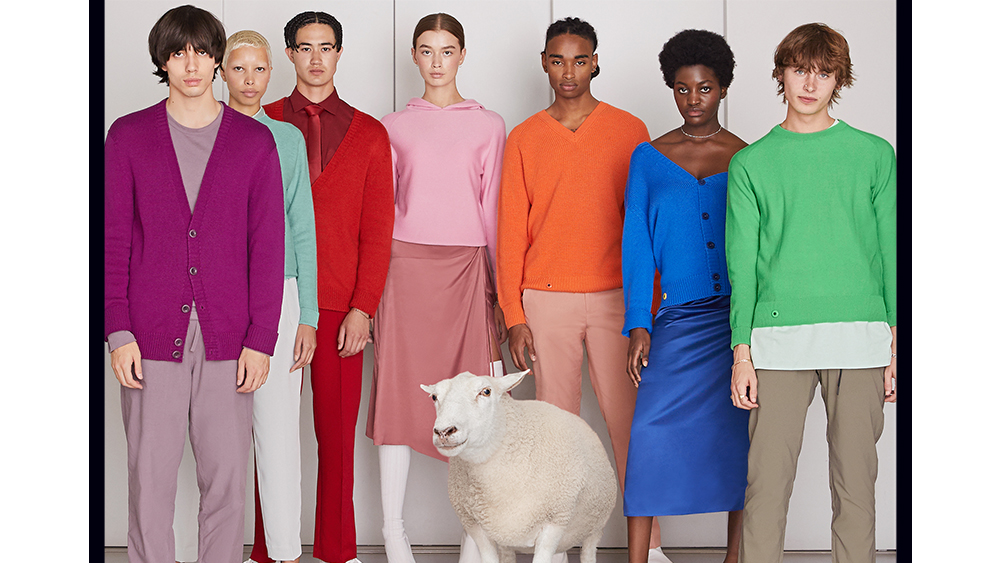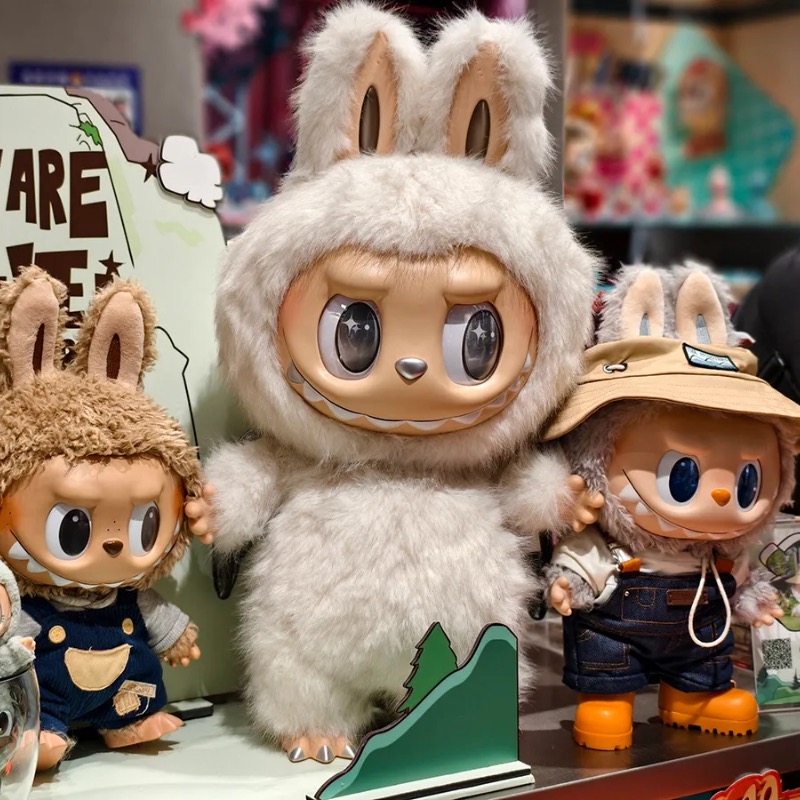When it comes to climate change, the proverbial jury is no longer out. More than 97 percent of actively publishing climate scientists concur that anthropogenic temperature change is a reality, and challenges to that claim, while abundant, never stand up to even cursory examination. The causes are myriad but, notoriously, fashion contributes up to 10 percent of global carbon emissions annually.
If these grim realities are irreversible, though, Edzard van der Wyck, the co-founder of Sheep Inc, never got the memo. The three-year-old London-based brand’s cardigans, hoodies and sweaters are not only nicely cut and crafted but biodegradable and designed to last a lifetime. Moreover, according to the company, its operations save more carbon than they emit.
“Our starting point was to understand how you could create beautiful products while still addressing the climate emergency,” van der Wyck tells Robb Report. “There are so many systemic issues with how things have traditionally been done within fashion.”

Sheep Inc’s founders, Edzard van der Wyck (left) and Michael Wessely. Sheep Inc
Besides CO2 emissions, Sheep Inc is zealous about responsible waste disposal. “The stats are shocking,” says van der Wyck. “Over the past couple of decades, we’ve been witnessing an accelerated growth in the production and consumption of clothing. Large amounts of non-renewable resources are extracted to produce clothes that are worn a handful of times before being discarded.”
Keeping up with the appetite for fast fashion has made textile production one of the most polluting industries on the planet, producing 1.2 billion tons of CO2 per year and, as van der Wyck says, “exploiting cheap labor to satisfy Western desires for increasingly cheap clothes that are being treated almost as single use goods.”
There’s nothing like a staunch moral stance to set social media ablaze with skepticism, so it’s perhaps inevitable that Sheep Inc’s social media posts are often flooded with comments from people, their hypocrisy detectors turned up to 11, eagerly dismissing all claims of carbon negativity. But van der Wyck insists that the claim is a valid one.

Sheep Inc’s production begins with sourcing wool from sustainably farmed sheep. Ben Curran
“It starts with looking at the product needs,” he says, noting that “the most sustainable items are ones that stay part of your wardrobe for generations to come. What follows then is considering what material is best suited to perform the desired function in the most sustainable way possible.”
Van der Wyck and his team found that merino wool checked all the boxes. The natural material, used in many a luxury sweater, is fully biodegradable and effectively regulates body temperature, meaning it can be worn year-round. “It also has natural, anti-microbial properties,” van der Wyck adds, “so that it self-cleans and odors don’t linger on the fiber, minimizing the need to wash it—meaning it has a low lifespan impact.”
Unlike traditional fashion brands, Sheep Inc built its supply chain from the bottom up in order to control and mitigate carbon emissions every step of the way. In Sheep Inc’s case, that means starting with the fleecy ovines. “Our wool is sourced in New Zealand from sheep stations at the forefront of the regenerative farming movement, sequestering more CO2 from the environment than their operations emit—around 10.5 kg of CO2 per kg of wool produced.”
Van der Wyck insists that all of the brand’s suppliers work with solar electricity and are committed to other sustainable manufacturing methods. But, the Facebook doubter may (and regularly does) cry, what about transport? New Zealand sheep farms are hardly local to Sheep Inc’s London headquarters. Van der Wyck gladly explains: “The reality is: the low net emission profile at the farm level far outweighs the negative impact of transport. Transport, if done by ship like we do, is a proportionally small part of our overall footprint, averaging about 0.6 kg of CO2 impact per sweater.” Compared to the 10.5 kg of CO2 Sheep Inc’s farms remove from the environment, shipping’s toll is minimal.
Of course, everything—even van der Wyck speaking these words—has a carbon footprint. So how can any manufacturing method, however diligent, ever be carbon negative? “We invest five percent of our revenue into regenerative biodiversity projects,” he says, referring to a fund the brand created in partnership with the head of climatology at London’s University College.

A flock of sheep in New Zealand, where Sheep Inc sources all of its wool. Aaron Smale
Each sweater is fully traceable, down to the sheep from which it came, via a QR code tag on the hem (made from a castor bean-derived bio-plastic, natch). Van der Wyck is adamant that this is more than just a marketing gimmick: “A tap of your phone lets you see the sweater’s journey, its carbon footprint at each stage of the supply chain—and it also allows you to name and track a real-life sheep on one of the farms that provided the wool.”
Ultimately, it’s about getting people to think more deeply about what they’re buying: “Every product carries a creation story, and that provenance—a garment’s journey—should be considered before making a purchase… awareness is where change really starts to take shape.”
Unfortunately for those social media adversaries itching to green-shame, van der Wyck’s explanations are pretty water-tight. Cynicism makes it easy to assume that brands being kind to the planet are just in it for the marketing potential, but what if eco-friendly kudos were just happy collateral of doing the right thing? Sheep Inc is certainly proving that the latter is possible.










